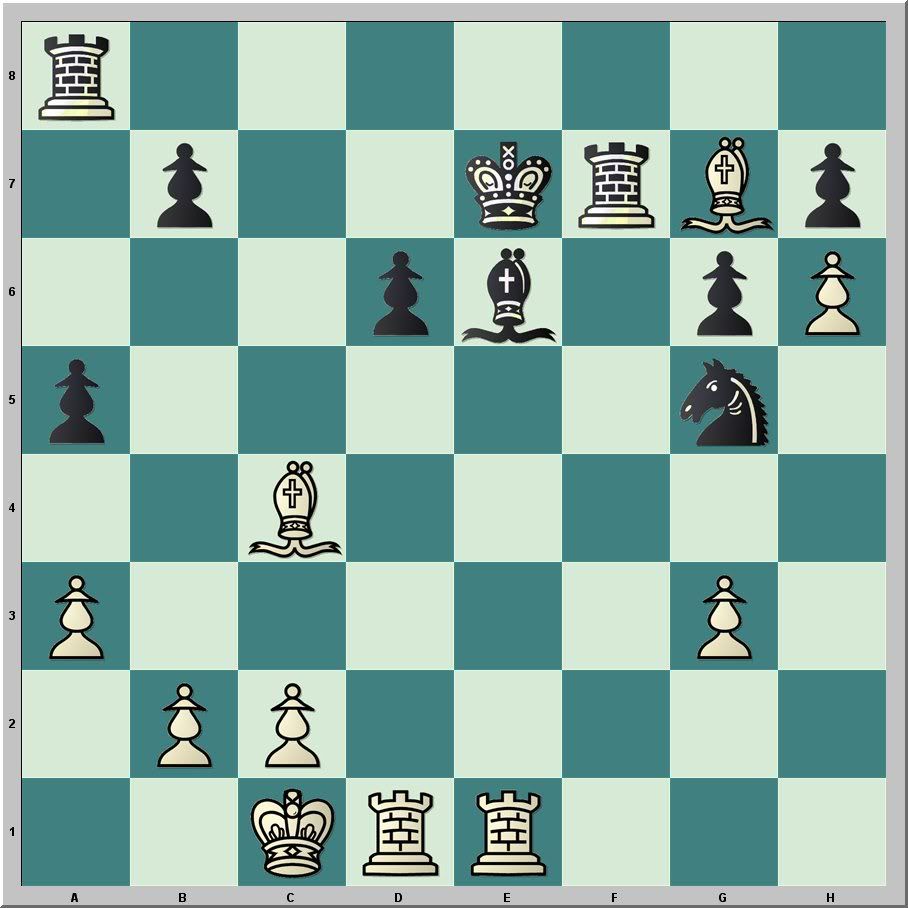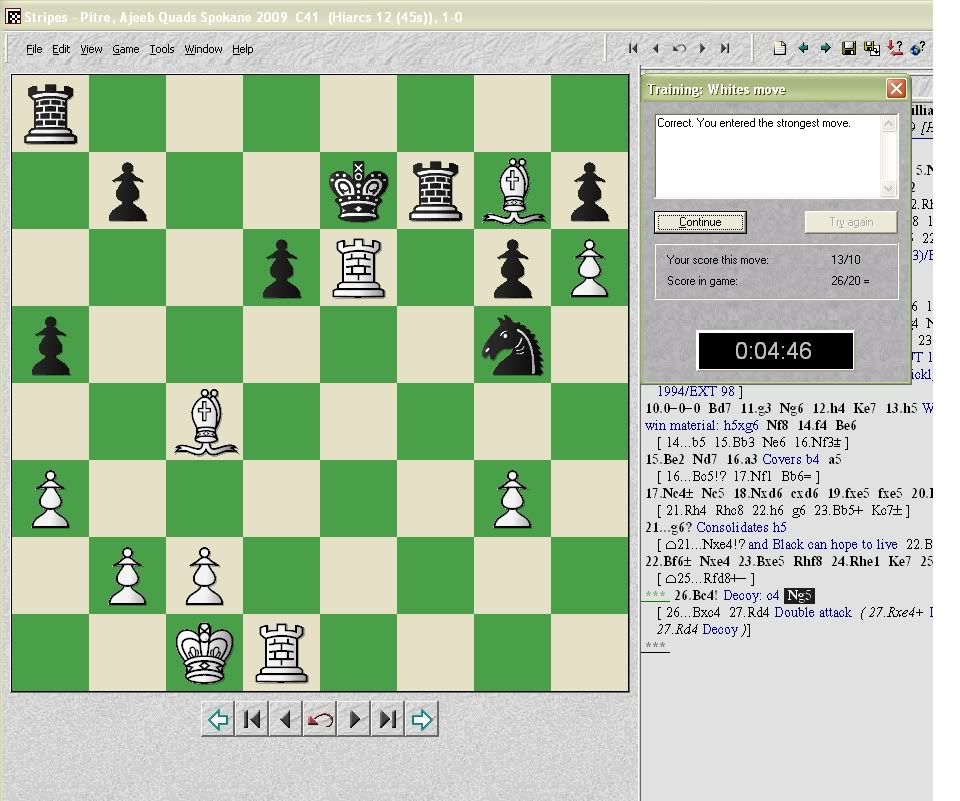The exercises created automatically by Fritz, however, should be greeted with skepticism. The engines like drama.
Fritz Training Flaws
When I ran my game from last Thursday through full analysis by Hiarcs 12 (this engine uses the Fritz 11 interface), it created two training problems. The second is from this position awaiting my move 27.
White to move

During the game I looked at this position, found the dramatic 27.Rxe6+, and executed it. In my interior monologue I was telling myself that I was winning a piece through brilliant forcing play. Indeed, I was implementing that sage advice uttered by chess teachers everywhere, such as Peter Kurzdorfer, The Tao of Chess (2004).
The key to checking multimove combinations is to concentrate on the forcing moves: checks, captures, promotions, and the immediate threats to check, capture, and promote. By cutting it down to these forcing moves, you now have some manageable numbers to work with. The moves you look at are the ones that will likely affect the outcome of the game.Immediately after executing my "brilliant move," I found the antidote. My opponent had a defense that refutes my idea. Instead of winning a piece as I had thought, I would have a bishop and two pawns for a rook. My internal monologue became hypercritical, telling myself how I will never advance in chess if I keep making hasty moves that I have not fully calculated.
Kurtzdorfer, 108
The rook check fails, and had I examined why it failed, I could have quickly found the much superior 27.Bd5. A fundamental element in tactical training and calculation is the process that Paata Gaprindashvili calls "reciprocal thinking" in his challenging Imagination in Chess: How to Think Creatively and Avoid Foolish Mistakes (2004).
After noticing an idea and briefly familiarizing ourselves with it, we proceed to its detailed examination. What do we do if we find that it doesn't work? ... If we fail to make an idea work, we need to stop and ascertain the cause of failure (i.e. answer the question "why?"), and then attempt to correct our design.Without detailed examination, the failure goes unnoticed.
Gaprindashvili, 40
I was lucky. Under the pressure of my forcing move, my opponent cracked and offered the game losing blunder on move 28. It's no wonder that Hiarcs likes forcing moves. Carbon-based lifeforms capitulate to such deceptions with regularity. But the engine knows better, so why did it create this training exercise?

After executing the same move that I played in the game, I read, "Correct! You entered the strongest move." But this feedback is wrong. My move is not among the half-dozen best choices. Although forcing, and although successful in this case, it might have cost me the game.
According to the quantitative assessment of Hiarcs 12 from the problem position, White's advantage is greater than two pawns. 27.Bd5 is assessed at +2.29 with a depth of 16, and is slightly inferior to +2.39 for Re3. After executing the move from the game, the assessment drops to +0.85. When I annotated this game in the wee hours of Friday morning (see "Last Night"), I gave my move a single ?; I might have given it two, calling it an egregious blunder.
Tactics training with these automatically generated exercises, if they have not been checked for accuracy, will cultivate one's vision for forcing moves. Rather than improving the necessary abilities for calculation, however, such problems may reinforce error.














It just erased my comment because I wasn't signed in.
ReplyDeleteSummary. Your opponent is much weaker in rating, still probably win with your continuation even. I find there is more to further examine later against higher-rated players.
Maybe you are too hard on yourself, 28...d5 29.Bxd5 Ra6 is not very visible because there are 2 moves before that.
ReplyDeleteHow do you create training exercises with Fritz during automatic analysis of the games?
RP, Thanks. Sometimes I need to be hard on myself to get better, and I want skill! As LG points out, I might have won this game anyway. Against stronger opponents, however, these are the errors that are costly. I cannot tolerate such error against weaker opponents and eradicate them against tougher competition.
ReplyDeleteI've answered your question regarding the creation of exercises in a new post today.